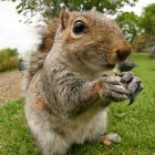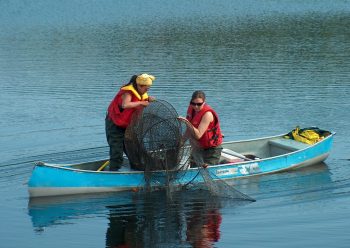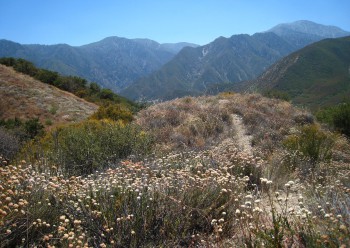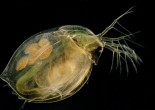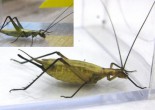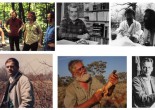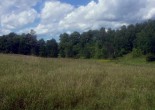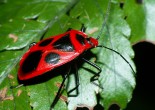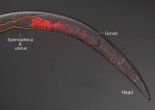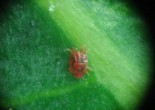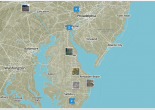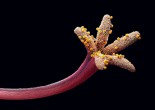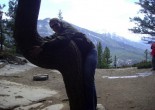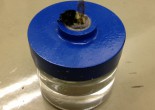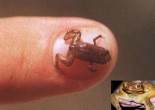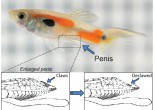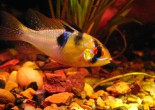Past as prelude: Predicting how fish will cope with climate change
By Rebecca Batstone, EEB Pop psychologist ‘Dr. Phil’ McGraw always says that “the best predictor of future behaviour is … past behaviour”. A maxim that can also be applied to fish. … Continue reading
Searching for monkeyflowers in California
Gallery: Click on the first picture and Kelly Carscadden (EEB) will walk you through her fieldwork.
A little bit of sex goes a long way
By Matthew Hartfield, EEB. Matty Hartfield gives us a digestible discussion of his latest paper, coauthored with Stephen Wright and Aneil Agrawal, which is available on biorxiv. Most evolutionary biologists are obsessed with … Continue reading
Motherhood, a heavy load to bear
By Kirstin Brink, EEB. Mothers make huge sacrifices for their kids. But some mothers, such as those among black-horned tree crickets, really go out on a limb for their young. … Continue reading
Classic papers in ecology and evolution
With so many papers being published all the time, it’s easy to miss out on interesting ones from the past. We decide, therefore, to start the ‘Classics in ecology and evolution … Continue reading
Seeding Solace: Handling heartbreak in the field
By BVM, EEB Squeezing my life around work as a graduate student is routine to me. Plants don’t take breaks from growing, so I’ve learned to bend and twist my … Continue reading
When taking a leave is the right thing to do.
By Alison W, EEB I’ve never met anyone who needed a break when everything was going well. Chances are you consider taking a leave of absence when the stress of … Continue reading
Why are some worms more diverse than others?
By Gavin Douglas, EEB Some of us are picky about where we live, while others can put down roots anywhere. Worms, aren’t much different. Shuning Li, Richard Jovelin and Asher Cutter … Continue reading
Are aggressive sperm a barrier to cross species sex?
By Arvid Ågren, EEB Males often compete fiercely for access to females. A new study shows that the consequences of this competition may extend beyond showy tails and big antlers, and … Continue reading
A new method to quantify species loss and gain
By Emily Drystek, EEB Every year rubber trees drop their leaves. When the leaves grow back they are deserted islands waiting for a community of animals to set up home. … Continue reading
Optimising your Organising: A Guide to Evernote
By Brechann McGoey, EEB For many of us being organised is a constant battle. A New Year, a new term, it’s a great time to change our ways. To ensure … Continue reading
Why do plants have biased sex ratios?
By Nathaniel Sharp, EEB One of the most celebrated arguments in evolutionary biology is the idea that populations should consist of an even number of males and females. The reason … Continue reading
How to conference, honey!
We will all head to a conference at some point during our time as a student. And although we know that they are good for us many of us find … Continue reading
The bullies and the bees
By Brie Edwards, EEB Ants and bees are fighting a turf war. Using elegantly constructed artificial flowers baited with plenty of sugary water, recent graduate Adam Cembrowski teamed up with … Continue reading
Females range in size more than males
By Aaron Hall, EEB Why do closely related species vary so much in size? This is the question on the lips of evolutionary biologists Stephen De Lisle and Locke Rowe from … Continue reading
Getting a grip on love
By Janice Ting, EEB When the flashy colours and fancy dancing don’t impress her, male guppies—tropical fish common in fish tanks—use claws on their penises to hang on to resistant … Continue reading
It’s a small world if you’re a miniature fish
By Stephanie Lefebvre, EEB From elephants to ants, walruses to weevils, animals vary hugely in size. But how an animal’s size influences its life isn’t well understood. For example, how … Continue reading
